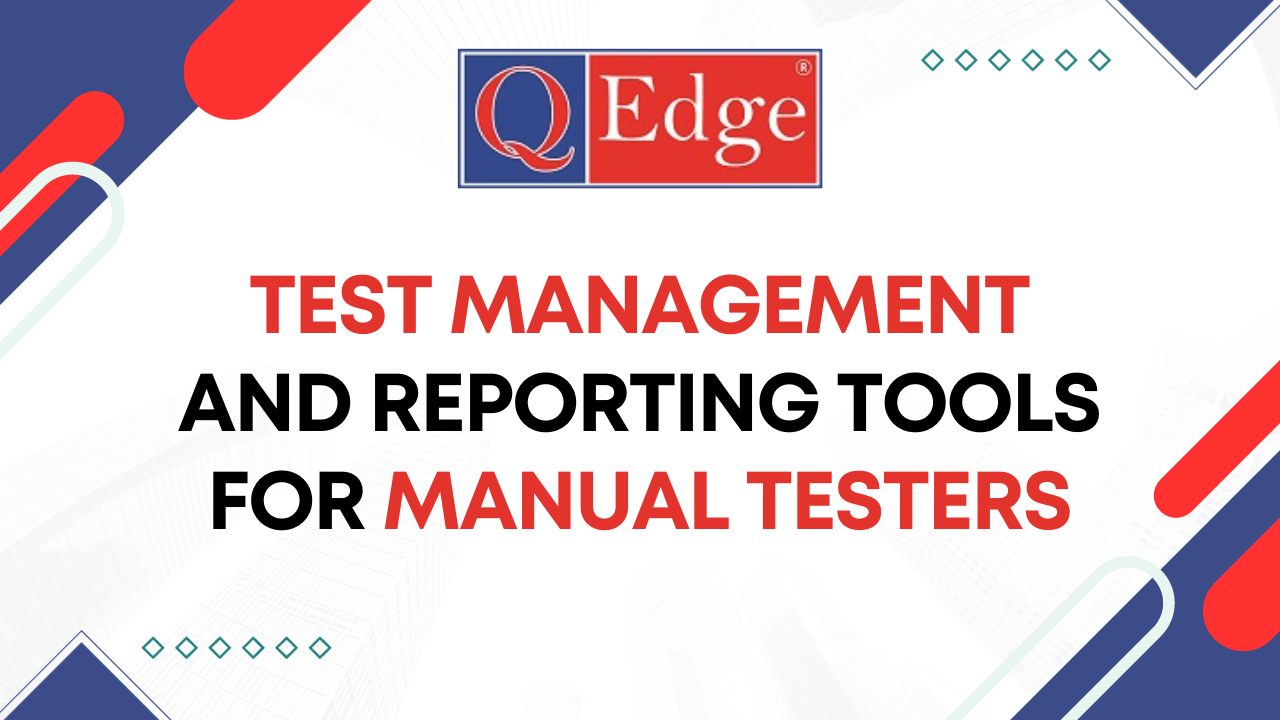Test Management and Reporting Tools for Manual Testers

Manual Testing Online Course
Introduction:
Manual testing continues to be a crucial aspect of ensuring the quality and reliability of software applications. Manual testers can benefit greatly from enrolling in a manual testing online course to enhance their skills and expertise. In this article, we will explore the keyword “manual testing online course” while discussing the importance of test management and reporting tools for manual testers. Effective utilization of these tools can streamline the testing process, improve efficiency, and enhance communication and collaboration within testing teams.
- Test Management and Reporting in Manual Testing:
Test management involves planning, organizing, and controlling testing activities throughout the software development lifecycle. Manual testers are responsible for managing test artifacts, executing test cases, and reporting test results. Efficient test management and reporting are crucial for effective communication, traceability, and ensuring a high level of accountability in the testing process.
- Importance of Test Management Tools:
Test management tools offer various benefits to manual testers, including:
- Centralized Test Repository: Test management tools provide a centralized repository for storing test cases, test scenarios, and related artifacts. Manual testers can easily access, update, and organize their test assets, ensuring consistency and traceability throughout the testing process.
- Test Planning and Scheduling: Test management tools help manual testers in creating test plans, defining test suites, and scheduling test execution. These tools enable testers to allocate resources effectively, prioritize testing efforts, and ensure comprehensive test coverage.
- Test Case Management: Test management tools allow manual testers to create, manage, and track test cases efficiently. Testers can define test case steps, expected results, and preconditions. These tools also provide options for version control, allowing testers to track changes and maintain the integrity of their test cases.
- Test Execution and Defect Tracking: Test management tools enable manual testers to execute test cases and log defects in a structured manner. Testers can record test results, attach supporting documents or screenshots, and assign defects for further investigation and resolution.
- Test Progress Tracking: Test management tools provide real-time visibility into the progress of testing efforts. Manual testers can track the execution status of test cases, monitor test coverage, and assess the overall health of the testing process. This helps in identifying bottlenecks, prioritizing testing efforts, and making informed decisions.
- Traceability and Reporting: Test management tools enable manual testers to establish traceability between requirements, test cases, and defects. These tools facilitate the generation of comprehensive reports, including test execution reports, defect reports, and coverage analysis. Such reports provide valuable insights into the status of testing efforts, test coverage, and defect trends.
- Reporting Tools for Manual Testers:
In addition to test management tools, manual testers can also benefit from using reporting tools specifically designed for their needs. These tools help in effectively communicating test results, highlighting critical issues, and presenting testing metrics. Some commonly used reporting tools for manual testers include:
- TestNG: TestNG is a popular reporting tool for manual testers utilizing Java. It provides detailed test execution reports, including test case status, execution time, and failure details. TestNG reports facilitate easy analysis and identification of failed test cases.
- Allure Framework: Allure Framework is a flexible reporting tool that can be integrated with various test automation frameworks. It offers interactive test execution reports with detailed test case status, logs, screenshots, and performance metrics. Allure reports are visually appealing and easy to understand.
- JUnitReport: JUnitReport is a reporting tool widely used in Java-based testing frameworks. It generates XML-based reports capturing test execution details, including test result, time taken, and stack trace for failures. JUnitReport facilitates report generation and analysis for manual testers utilizing JUnit.
- ExtentReports: ExtentReports is a powerful reporting tool that supports various programming languages and test frameworks. It provides comprehensive reports with detailed test execution logs, screenshots, and charts. ExtentReports enables manual testers to generate professional-looking reports for effective communication and analysis.
Conclusion:
Test management and reporting tools are essential for manual testers to streamline testing activities, improve efficiency, and enhance collaboration. These tools offer centralized test repositories, help in test planning and scheduling, enable efficient test case management, support defect tracking, provide test progress tracking, facilitate traceability, and generate comprehensive reports. Manual testers can benefit from enrolling in a manual testing online course to gain expertise in utilizing test management and reporting tools effectively. By mastering these tools, testers can elevate their skills, improve test management practices, and contribute significantly to the success of software testing efforts.
